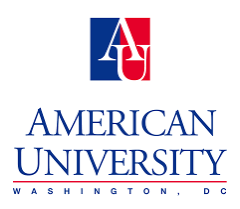
American University’s Business In the Capital Initiative (BCI), in cooperation with BioHealth Innovation, Johns Hopkins University, MedImmune and area governments and universities, is conducting a study of BioHealth Exports in the Washington Region. As part of the study, BCI is seeking input from area life science companies which are either currently exporting products or services-- or are not exporting but would like to do so in the near future. The study goals are to increase exports of life science products and services into the global health care markets, and to identify and remedy the barriers to entry to the global healthcare markets for BioHealth Capital Region companies.
To make this exercise a success, we are seeking life science companies in Maryland, Virginia and D.C. to participate in a survey. Participating companies will be interviewed either in person or via voice. Confidentiality of companies and the information they choose to provide is assured. To participate, contact Prof. Erran Carmel at carmel@american.edu or 202-885-1928.

You thought the Shark Tank was tough? The second annual BioHealth Capital Region Crab Trap is now accepting applications!
Submit your application for a chance to be named the company with the most commercial potential at the BioHealth Capital Region Forum.
Grand Prize: $10,000, Incubation Space in Prince William County, VA or Montgomery County, MD, Business Mentoring
Deadline for entries is March 31st - Finalists will be announced by April 7th
Submit an Application »

Just Confirmed: Maryland Governor Larry Hogan to Present Keynote April 19th
This invitation-only event is free for executive level biotech leaders and is presented by BioHealth Innovation, VirginiaBio, Paragon Bioservices, Inova, University System of Maryland and MedImmune/AstraZeneca. Maryland, Virginia, and Washington, DC set the bar high for biotech innovation. So please join us for our Annual BioHealth Capital Region Forum that will highlight the accomplishments of today and chart our successes of tomorrow.
We are excited to bring you an exceptional line up of speakers. The program will feature sessions that focus on Advancing Science and Accelerating Innovation.
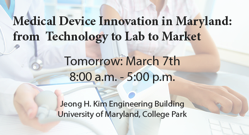
Tuesday, March 7, 2017 | 8:00 a.m. - 5:00 p.m.
University of Maryland: College Park, MD. Jeong H. Kim Engineering Bldg. (#225), Room 1107: Kay Boardroom In-person attendance only!
This one-day event will highlight the latest trends in medical devices and technologies and feature resources in the state that help bring products from invention to market. Topics include bioelectronics, cybersecurity for medical devices, convergence of devices and drugs, big data, robotic prosthetics, and additive manufacturing applications. Organizations representing Maryland innovation, entrepreneurial, funding, regulatory, and product scale-up resources will be there to discuss ways that they work with the medical device community.
This event is sponsored by the University of Maryland Robert E. Fischell Institute for Biomedical Devices, Maryland Manufacturing Extension Partnership, the Maryland Department of Commerce, Federal Laboratory Consortium (FLC), FLC Mid-Atlantic Region, National Institute for Standards and Technology Manufacturing Extension Partnership , and TEDCO.
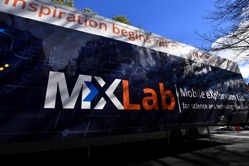
You and your colleagues are invited for a sneak peek at the country’s largest, most advanced, mobile STEM laboratory! After five years of planning and eight months of construction, MdBio’s new mobile laboratory, the Mobile eXploration Lab has finally arrived in Maryland and we are ready to show it off!
Please join us for an open house onboard the MXLab. MdBio’s team will be available to give tours of the nearly 1,000-square foot facility, answer questions, and show off the newest in mobile education tools and technology.
Tuesday, March 7 | 4-6 PM
Johns Hopkins University Montgomery County Campus
9601 Medical Center Drive, Rockville, MD 20850 (corner of Key West Avenue & Broschart Road)
Ample free parking is available.
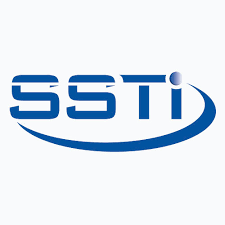
State and local governments invested $3.8 billion in R&D at institutions of higher education in FY 2015, with the top ten states accounting for $2.3 billion – roughly 59.4 percent of overall spending, according to an SSTI analysis of NSF data. From FY 2011 to FY 2015, total spending remained relatively unchanged (0.1 percent decrease). Over that same period, colleges and universities in 25 states reported increased expenditures from state governments, while 25 and the District of Columbia reported declines. This edition of Useful Stats examines how institutions of higher education report changing state and local investments in R&D.
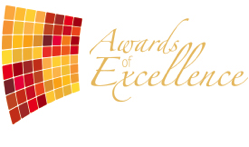
Celebrate Your Organization’s Excellence in 2017!
Each year, UEDA members compete for our prestigious Awards of Excellence, which recognize outstanding, leading-edge higher education projects and initiatives promoting economic development and engagement. Never content to rest on our laurels, however, last year saw a significant revamping of the Awards program to reflect UEDA’s ongoing research on economic development and engagement in higher education. We hope you will join us!
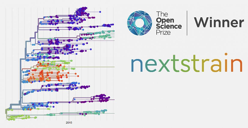
A prototype online platform that uses real-time visualization and viral genome data to track the spread of global pathogens such as Zika and Ebola is the grand prize winner of the Open Science Prize (link is external). The international team competition is an initiative by the National Institutes of Health, in collaboration with the Wellcome Trust and the Howard Hughes Medical Institute (HHMI). The winning team, Real-time Evolutionary Tracking for Pathogen Surveillance and Epidemiological Investigation (link is external), created its nextstrain.org (link is external) prototype to pool data from researchers across the globe, perform rapid phylogenetic analysis, and post the results on the platform’s website. The winning team will receive $230,000 to fully develop their prototype with NIH awarding $115,000 to the U.S. members of the winning team, and the Wellcome Trust and HHMI also contributing $115,000 to the winning team.

Imagine you are a local technology startup looking to manufacture a tiny air quality sensor that can be incorporated into an iPhone to dramatically improve public health. This is a potential billion-dollar market, but you need access to specialized and expensive semiconductor testing and evaluation labs to scale up the technology.
Large semiconductor manufacturers aren’t located in Maryland, so where do you go? California’s Silicon Valley? New York and its semiconductor cluster in Albany?

Alexandria Real Estate Equities, Inc. (NYSE: ARE), an urban office REIT uniquely focused on collaborative life science and technology campuses in AAA innovation cluster locations, today announced that Alexandria LaunchLabs® has selected a leading-edge group of life science startups as its first member companies. Alexandria LaunchLabs is New York City's first-in-class, highly affordable, full-service wet laboratory and office co-working space, which provides unique access to Alexandria's early-stage investment capital. Alexandria LaunchLabs' member companies will also have full access to Alexandria's world-class network and a highly amenitized campus, including a state-of-the-art conference, event and meeting space; two farm-to-table restaurants and a fully equipped fitness center.
In addition, Alexandria Venture Investments, its strategic venture capital arm and one of New York City's largest providers of early-stage life science venture capital, made its first New York City-based investment of 2017, leading the Series A financing for Applied Therapeutics Inc. Applied Therapeutics, a biotech company with technology licensed from Columbia University, is focused on developing transformative drugs in areas of high unmet medical need.

Join us at the Sinai Hospital BioIncubator in Baltimore on March 23rd for 2 great events. First hear from Yair Flicker, CEO of SmartLogic, who will share advice on hiring your first 10 employees. Then, stick around for some great networking at the BioBuzz event. Come for one, or come for both, just don't miss it!
Event Details: 4-5:30 pm: Distinguised Speakers Series featuring Yair Flicker Topic: How Not to Hire Your First 10 Employees: Lessons from the Trenches (Sinai Hospital Board Room)
5:30-7:30 pm: BioBuzz Networking @ the Sinai BioIncubator Location: Sinai Cafeteria
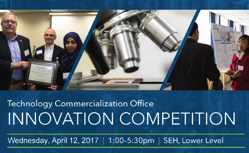
The George Washington University and the Technology Commercialization Office are pleased to invite you to the 2017 Innovation Competition!
The Technology Commercialization Office (TCO) is showcasing promising and impactful GW research with commercial potential. This event provides a forum for idea sharing between GW researchers, entrepreneurs, and members of the venture community, as well as the opportunity to present technologies available for licensing to a panel of experienced entrepreneurs, investors, and industry professionals. Finalists will pitch their technologies for a chance to win $30,000 in prizes!
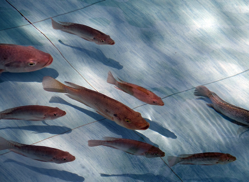
In this historic city by the sea in northeast Brazil, burn patients look as if they’ve emerged from the waves. They are covered in fish skin — specifically strips of sterilized tilapia.
Doctors here are testing the skin of the popular fish as a bandage for second- and third-degree burns. The innovation arose from an unmet need. Animal skin has long been used in the treatment of burns in developed countries. But Brazil lacks the human skin, pig skin, and artificial alternatives that are widely available in the US.

The Federal Laboratory Consortium for Technology Transfer (FLC) is now accepting submissions for its 2017 edition of the Federal Laboratories & State and Local Governments: Partners for Technology Transfer Success publication.
The State & Local Governments (S&LG) publication showcases the significant regional value that comes when state and local government entities and federal laboratories form strategic partnerships. Help us raise awareness about the impact federal labs can have on their surrounding areas by submitting your laboratory’s S&LG success stories for publication!
The FLC S&LG Committee encourages multiple success story submissions per region or agency. For examples of previously published success stories, view the 2015 S&LG publication.
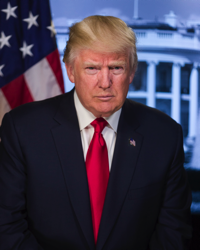
There was a remarkable moment during Donald Trump's historic address to Congress last night. The president, attacking what he called a "slow and burdensome" regulatory process at the Food and Drug Administration (FDA), highlighted a heart-rending story about Megan Crowley, a young woman suffering from a rare medical disorder who was among the speech's attendees. (Notably, the address was delivered on the night of Rare Disease Day.)

The chunk of the federal budget that includes most of the U.S. government’s spending on basic science would shrink by 10.5% in 2018 under a plan outlined today by President Donald Trump and administration officials.
It is unlikely that all civilian science budgets would see cuts under the proposal—and some could even get increases. But the spending blueprint, which would have to be approved by Congress, highlights the financial pressures that civilian research agencies will face as Trump and the Republican majority in both houses of Congress attempt to carry out campaign promises to raise defense spending while reining in the rest of federal spending.

Anyone who has lost a loved one to pancreatic cancer knows the devastating speed with which it can affect an otherwise healthy person. TED Fellow and biomedical entrepreneur Laura Indolfi is developing a revolutionary way to treat this complex and lethal disease: a drug delivery device that acts as a cage at the site of a tumor, preventing it from spreading and delivering medicine only where it's needed. "We are hoping that one day we can make pancreatic cancer a curable disease," she says.
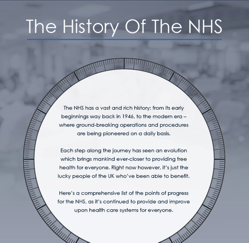
The NHS has been a godsend to the British people since its introduction in 1948 – with the free healthcare it has provided ensuring hundreds of millions of people have been able to live longer and healthier lives.
Such is the impact of the scheme, a tribute was paid to it during the opening ceremony for the 2012 London Olympic Games – an honour reserved for only the most impactful and important moments in a host nation’s history through the ages.

Of all five scenarios proposed by Commission President Jean-Claude Juncker for the way forward after Brexit, the real scenario is Number 3: “Those who want more do more,” which is another way of saying that the EU will be multi-speed, EURACTIV.com was told.
The Commission published today its White Paper (1 March) on the future of the EU-post-Brexit.